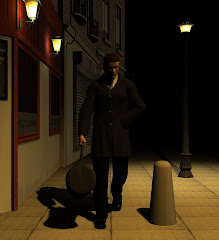Currently reading The Glorious Revolution, Edward Vallance's account of the events in 1688 which replaced James II with William and Mary on the British throne. Vallance is a revisionist to some extent, of course. Any historian who doesn't at least claim to be rewriting history won't find a publisher nowadays. He points out that the Glorious Revolution wasn't exactly a revolution. Though it had wide support in a Protestant England terrified of the Catholic, authoritarian James, it was basically a Dutch invasion which led to the crowning of a Dutch duke. (Mary was co-ruler only in name, partly on her own insistence). Most of the gentry went over to William's side when his armada landed. James was rather inconveniently left without an army and fled without a fight. But he would have probably lost anyway.
Nor, Vallance, states, was the 'Revolution' very Glorious. Outside of England it certainly wasn't bloodless. Rebellions against William in Ireland and Scotland culminated in the massacres of the Boyne and Glencoe. The Scottish resistance rumbled on for half a century until the final bloodshed at Culloden. No sooner was William comfy on the throne then he began a war with France which Britain could neither win nor afford. Vallance is also sceptical that 1688 marked, as is generally asserted, the birth of English liberty. William paid a little more attention to Parliament but only after packing it full of loyal Anglicans. Free speech was growing at the time, especially in the coffee house phenomenon, but in spite rather than because of government policy. The English Bill of Rights was certainly feeble compared to the American version. It was simply a reaffirmation of existing liberties, which were remarkably few. Unlike forty years earlier, there was no belief that the country could actually do without a monarch.
Vallance also gives a partial defence of James II. He wasn't trying to forcibly re-convert Britain to Catholicism, as was often claimed. His only legislation tried to reduce the civil but systematic discrimination against Catholics. His less laudable actions, from butchering the followers of a feeble uprising to rigging parliamentary elections, were fairly standard for the time. But his brusque personality and habit of increasing his standing army excited fears of absolutist rule, quite apart from his religion. I would have probably shared this paranoia. James was becoming increasingly authoritarian after only three years. Who knows what he would have been like if power had time to corrupt him properly?
Anyway, his true character is beside the point. Most people didn't want James. There was an energetic attempt to exclude him from the succession during the last years of his brother's reign. They stuck with him for a while, saw he was apparently as bad as they thought and simply replaced him. Britain still had to have a king, it seemed, but Britain would have the king it wanted. The notion of a divine right to rule died abruptly. And I think that the modern British attitude to its monarchy began to be created in its place. You can see a line, if not a direct one, leading from the Glorious Revolution to the events in Westminster this week. Where an overdressed woman announces the legislation to be introduced by 'her' government – yet is still only a hired orator for the elected rulers.
Nor, Vallance, states, was the 'Revolution' very Glorious. Outside of England it certainly wasn't bloodless. Rebellions against William in Ireland and Scotland culminated in the massacres of the Boyne and Glencoe. The Scottish resistance rumbled on for half a century until the final bloodshed at Culloden. No sooner was William comfy on the throne then he began a war with France which Britain could neither win nor afford. Vallance is also sceptical that 1688 marked, as is generally asserted, the birth of English liberty. William paid a little more attention to Parliament but only after packing it full of loyal Anglicans. Free speech was growing at the time, especially in the coffee house phenomenon, but in spite rather than because of government policy. The English Bill of Rights was certainly feeble compared to the American version. It was simply a reaffirmation of existing liberties, which were remarkably few. Unlike forty years earlier, there was no belief that the country could actually do without a monarch.
Vallance also gives a partial defence of James II. He wasn't trying to forcibly re-convert Britain to Catholicism, as was often claimed. His only legislation tried to reduce the civil but systematic discrimination against Catholics. His less laudable actions, from butchering the followers of a feeble uprising to rigging parliamentary elections, were fairly standard for the time. But his brusque personality and habit of increasing his standing army excited fears of absolutist rule, quite apart from his religion. I would have probably shared this paranoia. James was becoming increasingly authoritarian after only three years. Who knows what he would have been like if power had time to corrupt him properly?
Anyway, his true character is beside the point. Most people didn't want James. There was an energetic attempt to exclude him from the succession during the last years of his brother's reign. They stuck with him for a while, saw he was apparently as bad as they thought and simply replaced him. Britain still had to have a king, it seemed, but Britain would have the king it wanted. The notion of a divine right to rule died abruptly. And I think that the modern British attitude to its monarchy began to be created in its place. You can see a line, if not a direct one, leading from the Glorious Revolution to the events in Westminster this week. Where an overdressed woman announces the legislation to be introduced by 'her' government – yet is still only a hired orator for the elected rulers.

No comments:
Post a Comment